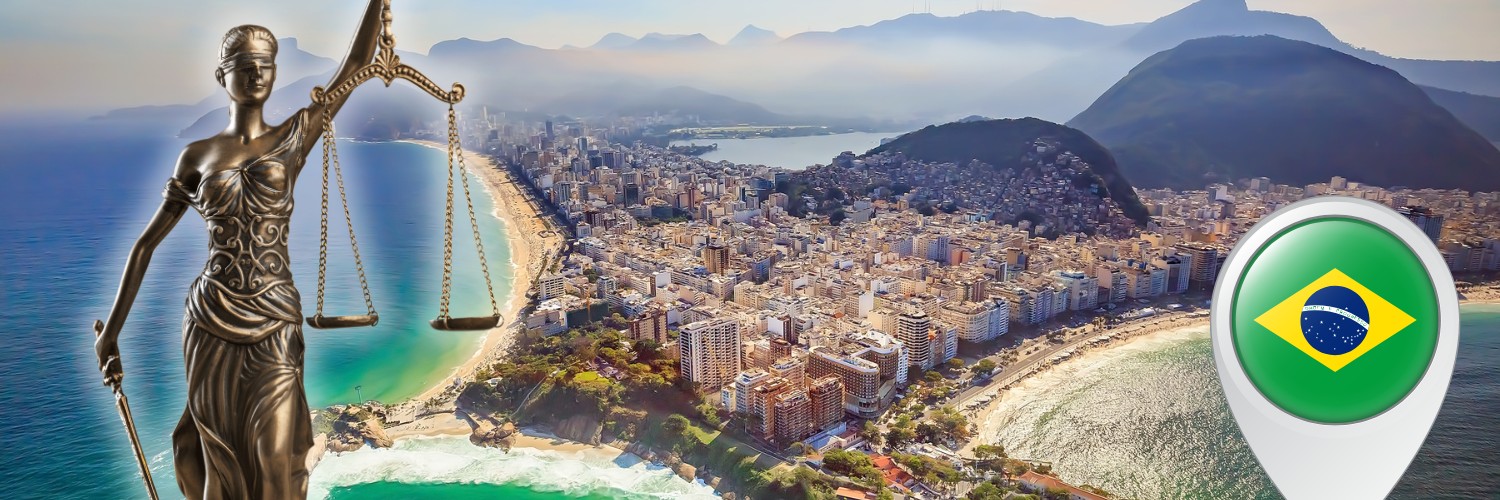How Lawsuits Work in Brazil: A Practical Overview

If you are considering filing or defending against a lawsuit in Brazil, it is crucial to understand How Lawsuits Work in Brazil and how this country’s legal system differs from the U.S. framework. As attorneys experienced in both domestic and cross-border disputes, we have prepared this overview to guide prospective clients seeking legal representation. Below, you will find insights regarding key aspects of the Brazilian court system, including its foundations in civil law, the discovery process, incentives (or lack thereof) to settle, typical timelines, and special considerations for foreign parties. Although every case is different, this guide will give you a general sense of what to expect.
Civil Law vs. Common Law
In discussing How Lawsuits Work in Brazil, remember that Brazil follows a civil law tradition, unlike the common law system in the United States. This difference shapes not only how cases are argued but also how judges reach decisions. The Brazilian Civil Code and the Code of Civil Procedure serve as the main legal references. Unlike in common law countries, stare decisis (the principle of binding precedent) is not strictly applied here. While higher court rulings do influence lower courts, judges generally exercise broader discretion and are not bound by precedent in the same manner as U.S. courts.
If you are worried about unpredictable rulings, Brazil does have a robust appeals system that allows litigants to challenge decisions when legal grounds exist. The Supreme Federal Court (Supremo Tribunal Federal) and the Superior Court of Justice (Superior Tribunal de Justiça) play significant roles in ensuring cases meet constitutional and statutory requirements. Despite the absence of formal precedent, the judiciary strives for consistency, especially in higher courts.
Discovery in Brazil
One of the most striking differences for U.S. litigants is the discovery process. In Brazil, attorneys do not engage in wide-ranging discovery among themselves. Instead, discovery is predominantly court-driven. When evidence or information needs to be produced, lawyers must petition the judge, who decides whether, and to what extent, discovery is permissible. This judicial oversight aims to keep the process focused and prevent fishing expeditions, but it can also mean that you have less opportunity to gather evidence freely.
Because of this system, preparing your case proactively is critical. Collecting relevant documents, contracts, or correspondence before filing (or responding to) a lawsuit can give you a strategic advantage. For those accustomed to the U.S. system, it is also helpful to know that depositions, as widely used in American litigation, are not standard in Brazil. Instead, witness testimony is usually heard directly by the judge during scheduled hearings.
Little Incentive to Settle
In the United States, legal costs can be “brutal,” frequently motivating early settlement to save on fees and expenses. By contrast, in Brazil, attorney fees of up to 20% are typically locked-in at the moment a lawsuit is filed, and these costs become somewhat “sunk” for the parties involved. Consequently, there is often less financial incentive to settle quickly. Many litigants in Brazil prefer to prolong the litigation, hoping that delaying tactics or a drawn-out process will eventually benefit them.
Brazilian rules on fee-shifting can also make litigation relatively more predictable: in many cases, the losing party will be ordered to pay the prevailing party’s attorneys’ fees (known as sucumbência). However, these fees are often capped or subject to guidelines that may still make long-running disputes attractive to parties with patience and resources.
Expected Timeline
If you are used to the pace of litigation in Texas or California—where civil lawsuits might reach resolution in two to three years—the timeline in Brazil can come as a shock. In many instances, especially more complex matters, it is common to see lawsuits extend for a decade. Probate proceedings and other intricate civil matters can drag on even longer, sometimes for decades, primarily because of procedural intricacies, overcrowded court dockets, and multiple appeal stages.
Planning for a long procedure is vital. Patience and a well-thought-out strategy can help you remain focused on eventual success. While the courts have been adopting reforms to expedite cases—such as introducing digital filings and streamlined procedures—the overall pace remains substantially slower than in the U.S.
Foreign Parties (Citizens and Companies)
If you are a foreign citizen or a foreign company embroiled in a dispute in Brazil, you should be aware of a few additional steps:
Sworn Translations: All non-Portuguese documents, from contracts to certificates, generally need official translations (traduções juramentadas) before they can be admitted into evidence.
Apostille: To ensure validity of foreign documents in Brazil, an apostille under The Hague Convention is typically required, proving the authenticity of the foreign notarial or government-issued paperwork.
Security Deposit: While not always mandatory, in certain circumstances, foreign plaintiffs may be asked to post a security deposit (caução) to cover – for instance – the “honorarios de sucumbencia” and other potential costs, guaranteeing that the other side is not left without recourse in case the foreign party refuses to pay.
Working with Brazilian lawyers familiar with international litigation can streamline these formalities. They can guide you on the best way to manage translations, apostilles, and any local bureaucratic steps before you file or respond to a lawsuit.
Watch our video here:

